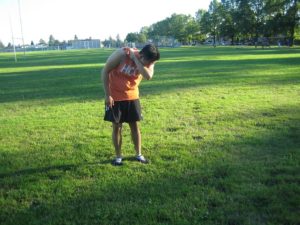Dry mouth is a condition associated to insufficient saliva. Each individual has experienced a dry mouth occasionally, particularly when upset, nervous or under stress. This is not a normal part of the aging process. If the individual has a dry mouth most of the time, it can cause discomfort and result to serious health issues. Once an individual suspect that he/she has a dry mouth, set an appointment with a dentist or doctor.
Indications of a dry mouth
- Sticky, dry sensation in the mouth
- Burning feeling in the mouth
- Difficulty chewing, tasting, swallowing or speaking
- Cracked lips
- Dry feeling in the throat
- Mouth sores
- Dry and tough tongue
- Mouth infections
What are the causes?

An individual can end up with a dry mouth once the glands in the mouth that produces saliva are not working properly. Due to this, there is not enough saliva to keep the mouth moist. There are various reasons why the salivary glands are functioning erratically.
Disease
One of the main cause of dry mouth is Sjogren’s syndrome. Other conditions can also cause a dry mouth or affect the salivary glands. Some individual experience a dry mouth even if the salivary glands are functional.
Side effects of certain medications
Various medications can cause the salivary glands to produce less saliva. The doctor should be consulted to have the dosage adjusted to prevent the drying effects. The medications that can lead to dryness include diuretics, antihistamines, decongestants, antidepressants, tranquilizers and some anti-diarrhea, anti-psychotic and blood pressure medications.
Radiation therapy
The salivary glands might be impaired if they have been exposed to radiation during the treatment of cancer
Chemotherapy
The medications that are used to treat cancer can cause the saliva to thicken, thus resulting to a dry mouth
Nerve damage
Any form of injury to the neck or head can damage the nerves that signal the salivary glands to generate saliva
Management
The treatment for a dry mouth depends on the cause of the problem. If an individual suspect that he/she has a dry mouth, a doctor should be consulted.
- If the cause is one of the medications used, the doctor might make changes to the dosage or the medication.
- In case the salivary glands are not working properly but still produces some saliva, the doctor or dentist might provide a medication that helps the glands function better.
- Artificial saliva might be recommended to keep the mouth moist.
Measures to relieve a dry mouth
- The individual can sip on water or sugar-free beverages often. Remember that only sips of water must be taken. Ingesting large amounts will not make the mouth less dry. It will only increase the frequency of urination and might strip the mouth of mucus, thus resulting to more dryness.
- Avoid beverages that contain caffeine such as tea, coffee and some sodas.
- Sip on water or a sugar-free beverage during meals to make chewing and swallowing easier as well as improve the taste of food.
- The individual can chew on sugarless gum or suck on a sugar-free hard candy to stimulate the flow of saliva. Good options include flavors such as cinnamon, citrus or mint.
- Avoid certain foods such as salty or spicy ones
- Use a humidifier at night time
- Avoid using tobacco or drinking alcohol since both can dry out the mouth.
